Features of the use of colloidal sulfur for grapes
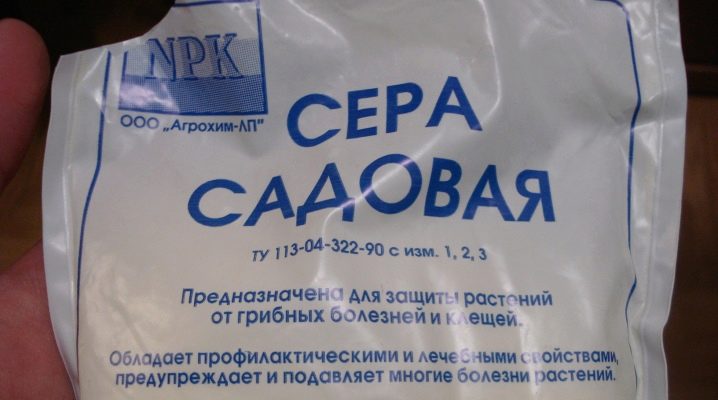
In order for the vineyards not to get sick and to bear fruit well, they must be constantly looked after. But even in this case, the plant is often exposed to various diseases. To combat them, there is a universal remedy called colloidal sulfur. It is used both to treat diseases and to carry out preventive measures.
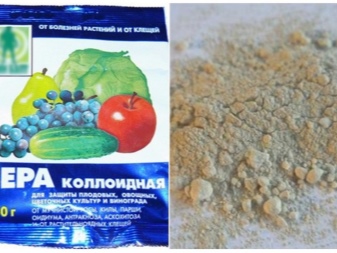
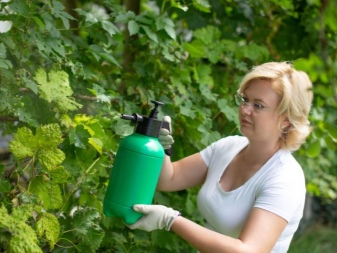
Description and purpose
Colloidal sulfur is a drug that has a positive effect on the vine, which is prone to all kinds of diseases.
But first of all, the remedy can resist fungal diseases.
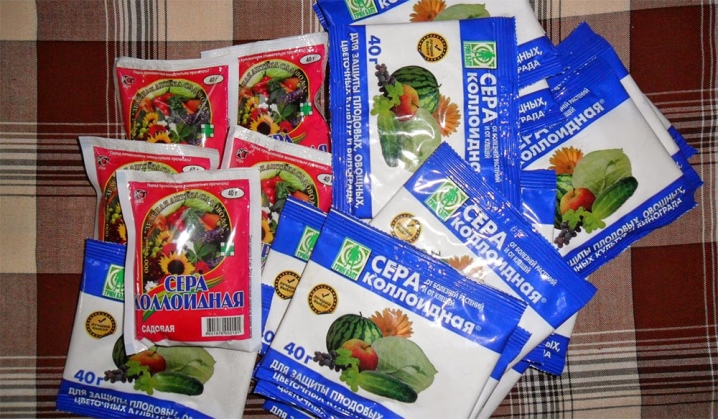
With the help of colloidal sulfur, you can fight various ailments.
-
Oidium or powdery mildew. The main symptom of the disease is the formation of white bloom on the foliage. In this case, the inflorescences fall off, not even having time to bloom, and the clusters are very small. Powdery mildew is caused by a fungal bacteria.
-
Downy mildew differs from the present in symptoms of manifestation. In this case, the lower parts of the leaves are covered with a white bloom. It also covers the berries, and cracks appear on their peel. The fruits begin to rot or dry out. Dark spots can be seen on vines prone to this infection.
-
Anthracnose is another disease, the first sign of which is the appearance of dark spots on the vine. In the process of the progression of the disease, holes form at the site of the spots.
-
Gray rot. The symptoms of this disease can be seen visually. A plaque appears on the bunches that looks like mold.
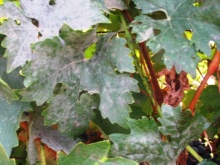
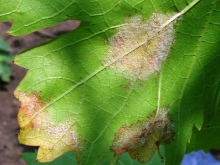
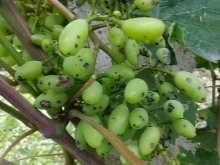
Colloidal sulfur for grapes belongs to the category of non-toxic fungicides. A characteristic feature is the lack of penetration of the substance into plant tissues. But despite the lack of toxicity, it is not recommended to use the solution too often (no more than 5 times per season).
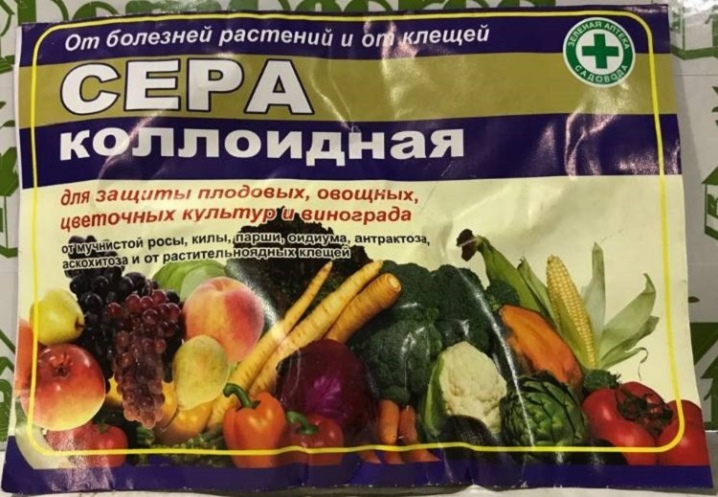
Instructions for use
In order to prepare a solution, it is necessary to mix 80 g of the substance with 10 liters of water. If the agent is used not for the treatment of diseases, but only for their prevention, then the concentration of colloidal sulfur in the water should be slightly reduced. Best to breed in a plastic bucket.
Before you start processing plants, you need to decide on the period. The most favorable option is processing in July (before flowering). But it is also not forbidden to carry out processing in August (usually during this period ovaries begin to form).
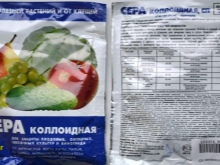
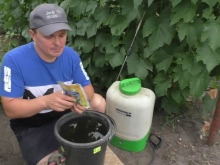
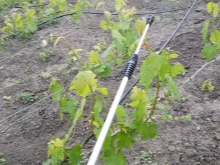
Final spraying should be done a few days before harvest. If processed according to this scheme, then the maximum effect can be obtained from the treatment.
For prevention, grapes should be sprayed in early spring, even before bud break. Preventive measures are very important as they prevent the onset and further development of diseases.
For the treatment of any disease, the dosage remains unchanged: 80 g per 10 liters of water. This volume is enough for processing about 60 sq. m. For prevention, you can dilute the solution a little weaker. The waiting time for the effect of the therapy is several days.
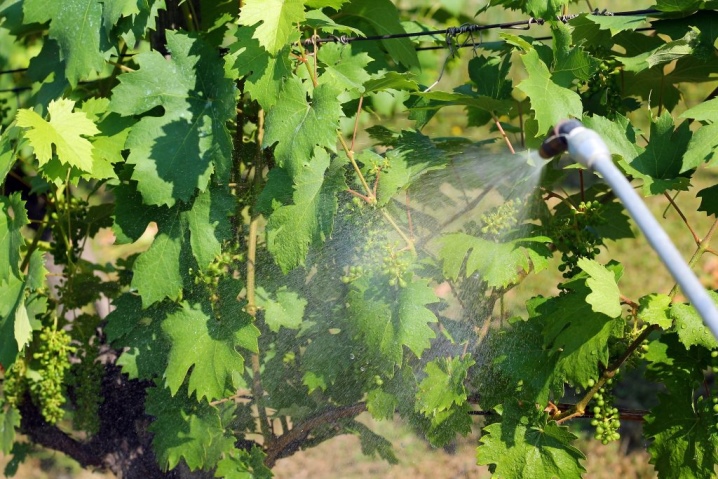
Vineyards can be processed almost at any time of the day. But it is best to do this in the afternoon, when sun activity is significantly reduced. And you should also be guided by the weather.It is very important that rain does not fall shortly after the treatment. Otherwise, the effect of the treatment will be negligible.
If the air temperature drops below +16 degrees, then it is practically pointless to carry out processing.
The fact is that the destruction of fungi actively occurs when the substance passes into a vaporous state. And for this, the air temperature must be higher than the indicated indicator.
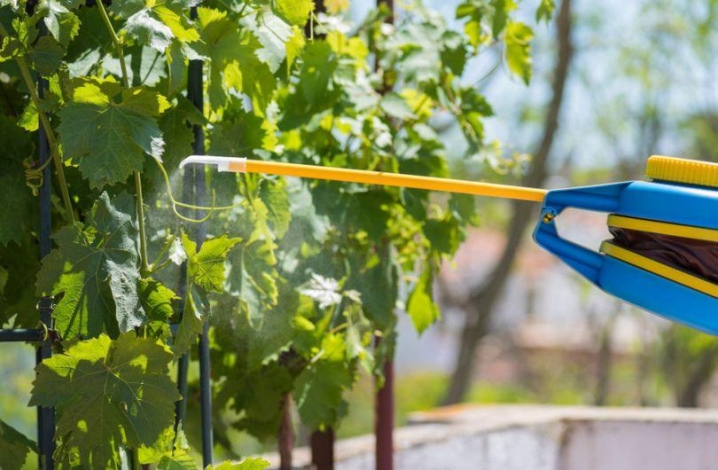
Precautionary measures
When processing vineyards, it is recommended to observe precautions. Of course, colloidal sulfur does not belong to substances toxic to humans, but protection will not be superfluous.
It is better to carry out processing in calm weather so that drops do not fall on the person who is spraying. It is recommended to use a mask or respirator, goggles and protective suit as personal protective equipment.
If the product does get on the skin or mucous membranes, it is necessary to urgently rinse this area under running water.
Seek medical attention if necessary.
After processing with a chemical (meaning the final session), the berries must be washed before eating.
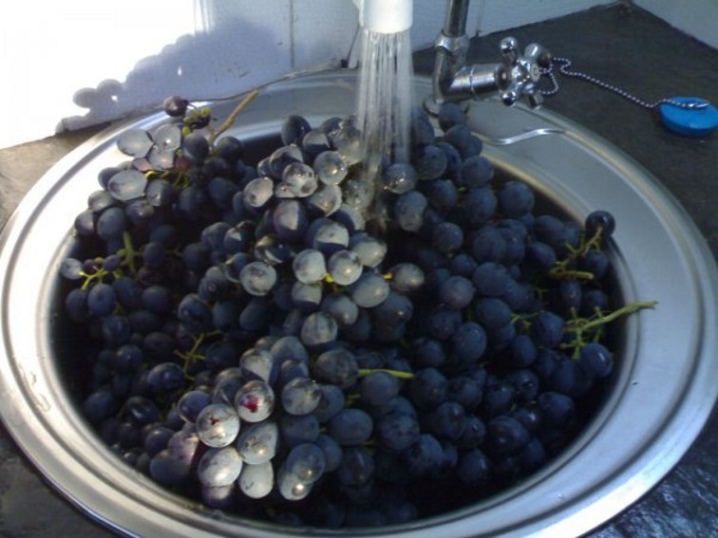
Storage nuances
Since colloidal sulfur belongs to the category of chemicals, certain requirements are imposed on its storage. The main condition is to keep it out of the reach of children and pets. For storage, choose a cool and dark place where direct sunlight does not penetrate.
It is strictly forbidden to store this drug in the immediate vicinity of food, as well as drugs. In addition, it is best to store colloidal sulfur in its original packaging and not pour it into any jars, boxes or bags.
Sulfur belongs to the category of flammable substances, therefore it must be kept away from heating appliances and open sources of fire.
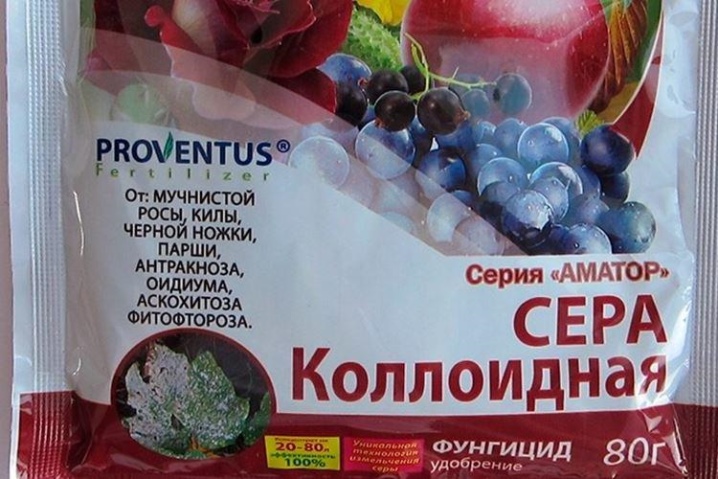
If the drug has expired, then it must be disposed of without opening the package. Using such a tool is unsafe and ineffective.
The principle of using colloidal sulfur differs little from those applied to fungicides of this purpose. The main thing is to follow the instructions for use, and not to neglect the precautions. It also doesn't need to be over-processed, as even the safest chemical can harm the plant.
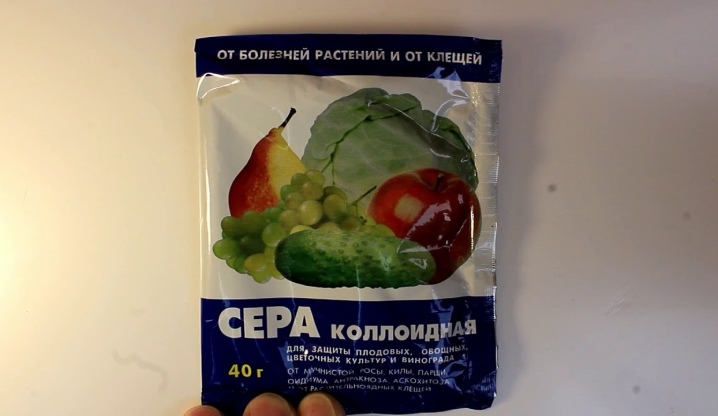













The comment was sent successfully.